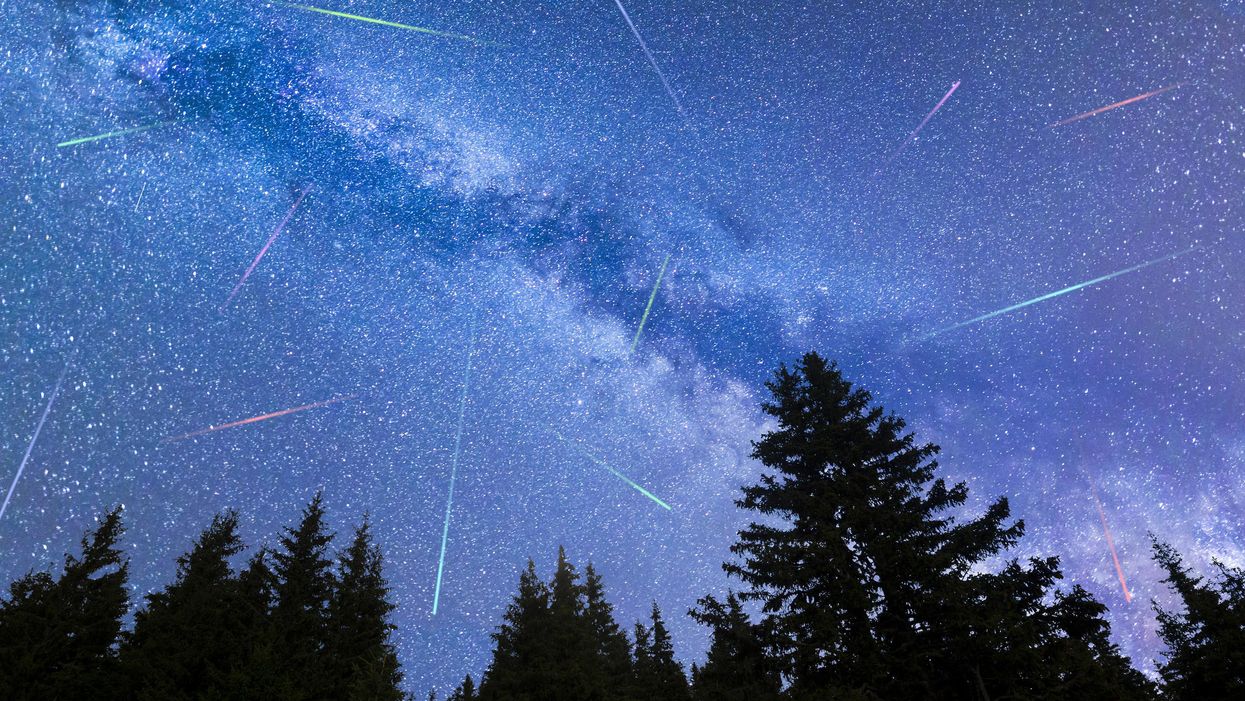The Perseids Are Coming Soon & Here's Where To Watch The Dreamy Meteor Shower In Ontario
They'll be at their peak next week! 🌠

A view of the Perseids meteor shower.
If you love stargazing, you'll want to mark your calendars for the Perseids that will light up the night skies next week!
EarthSky, an astronomy website, shared that this meteor shower is expected to be at its peak around August 11 to August 13 — and it'll be one you won't want to miss watching here in Ontario.
While the Perseids are known for being bright and colourful with "rich and steady" streams, the full moon might actually put a damper on how clearly you can see them at their peak this year.
But, it's not time to hang up the binoculars quite yet, as you should still be able to see them before they shine their brightest.
"However, note that this shower tends to rise a peak gradually and then fall off rapidly after the peak. That means you can watch for Perseid meteors in the week or 10 days before the peak," EarthSky said. Phew!
So, where can you watch this year's meteor shower in Ontario?
Make your way to the observatory at Algonquin Provincial Park on August 12 and 13, where you can learn how to properly stargaze during one of the year's biggest meteor showers.
Or, you can head over to any of the other Dark-Sky Preserves in Ontario, like Bruce Peninsula National Park, Fathom Five National Marine Park and Point Pelee National Park. All of these parks are approved by the Royal Astronomy Society of Canada and are a "welcome escape from glaring city lights" as they are free of light pollution.
If you're looking for a spot in Toronto, you can try out High Park or the Scarborough Bluffs. Meanwhile, if you're in Ottawa and don't mind going on a short drive to Wakefield, Quebec, you can go for a late-night paddle in Éco-Odyssée and take in the meteor shower out on the water (though you'll need to book in advance).
You can also learn about the meteors from the comfort of your own home with the David Dunlop Observatory's "Up In The Sky: Perseids Special," which will teach you how to best catch sight of them in the night sky (and how to photograph them, too).
Before you get going, check out our Responsible Travel Guide so you can be informed, be safe, be smart, and most of all, be respectful on your adventure.
This article's cover image was used for illustrative purposes only.
- Ontario Dark Sky Park Is A Magical New Spot For Stargazing - Narcity ›
- Canada Could See A 'Meteor Storm' In The Night Sky Because Of A ... ›
- Perseids Meteor Shower - Narcity ›
- Perseids Are One Of The Best Meteor Showers & Here's How To ... ›
- This Night Tour Near Ottawa Will Have You Paddling Through A Maze Under A Meteor Shower - Narcity ›